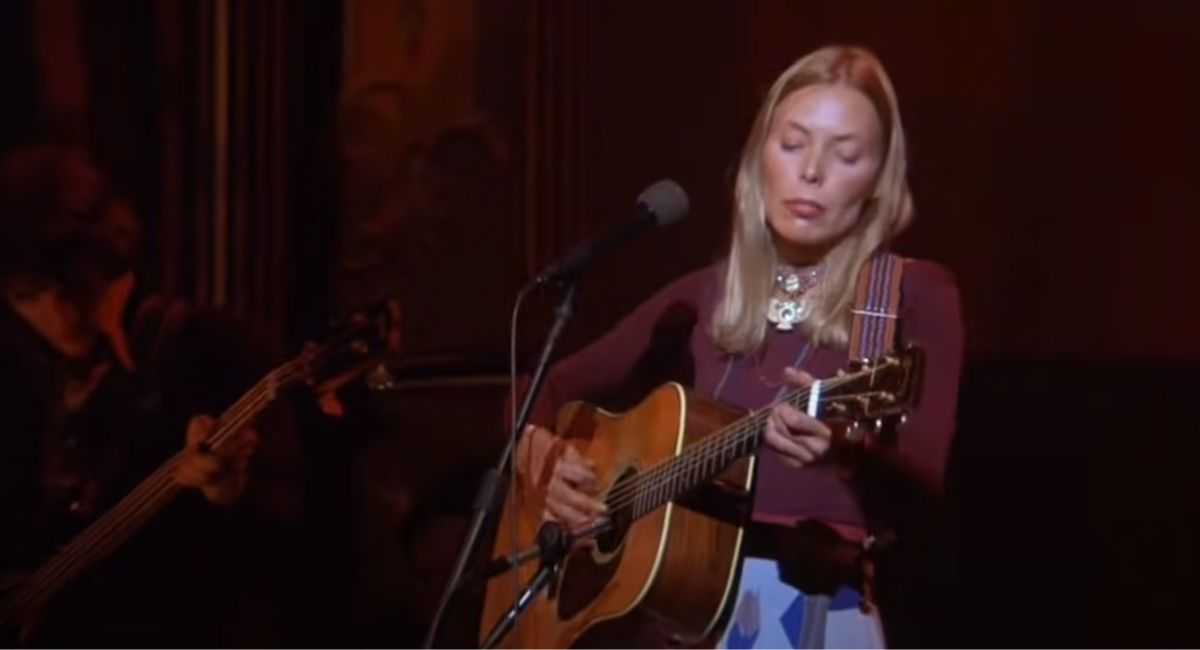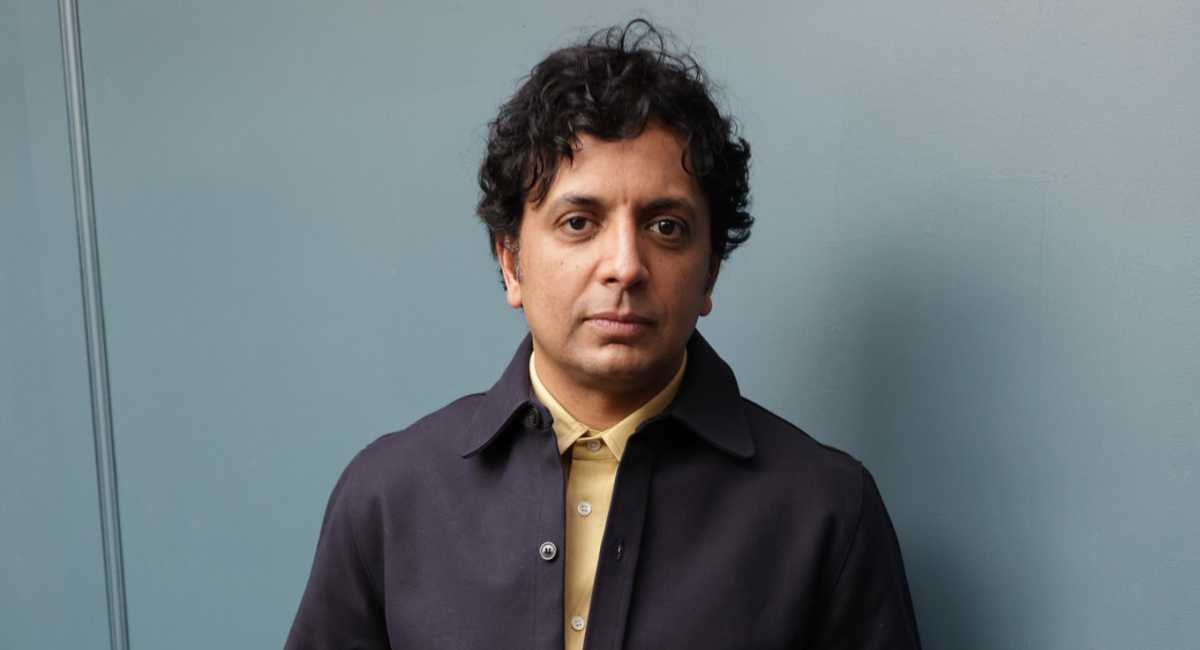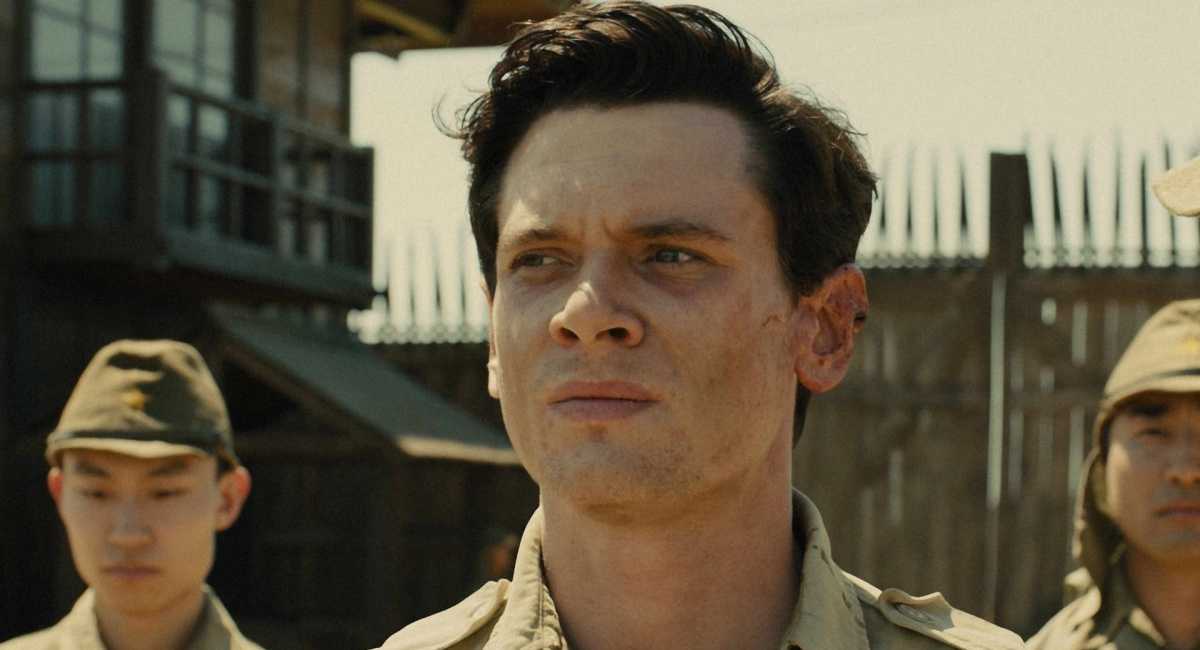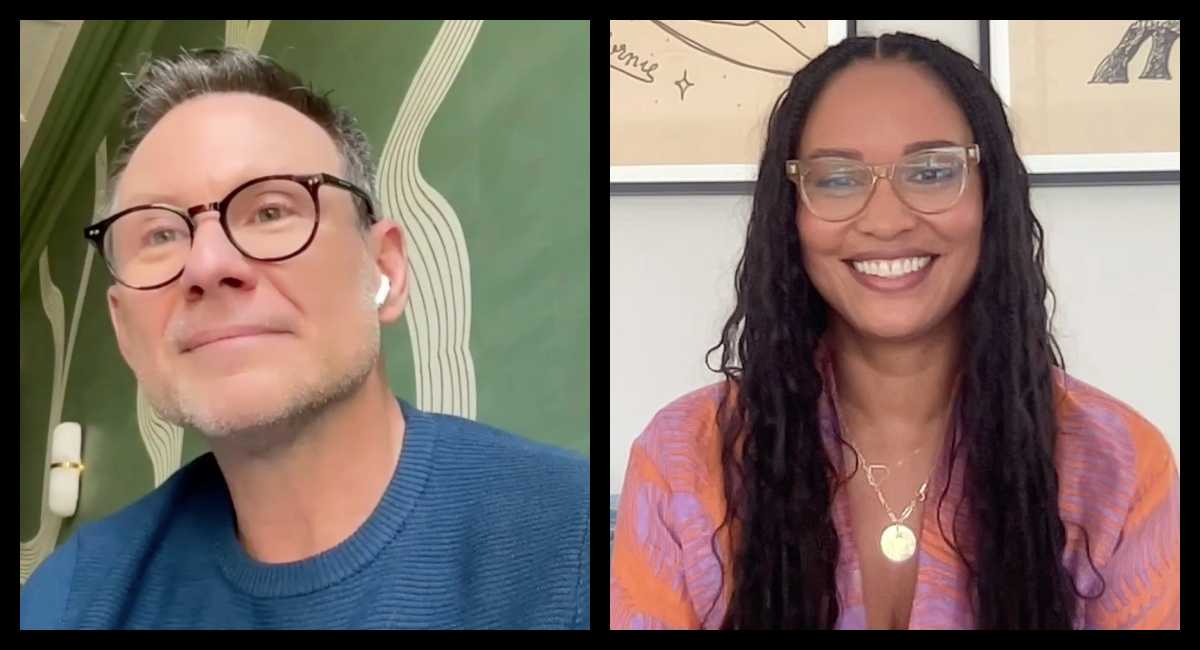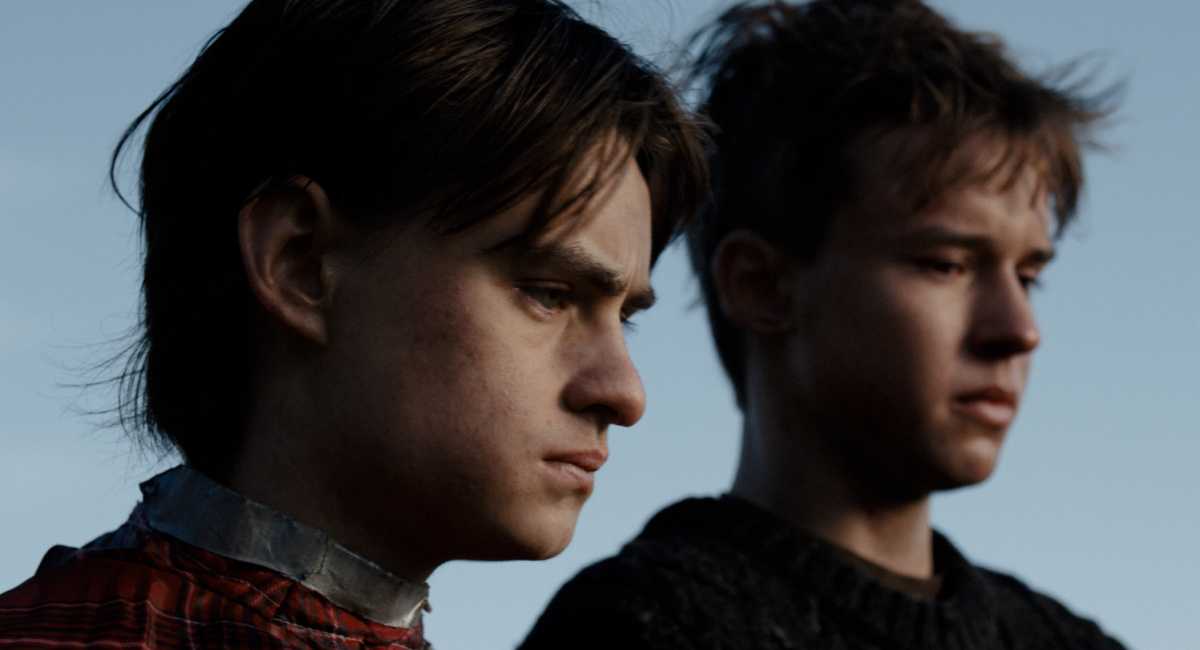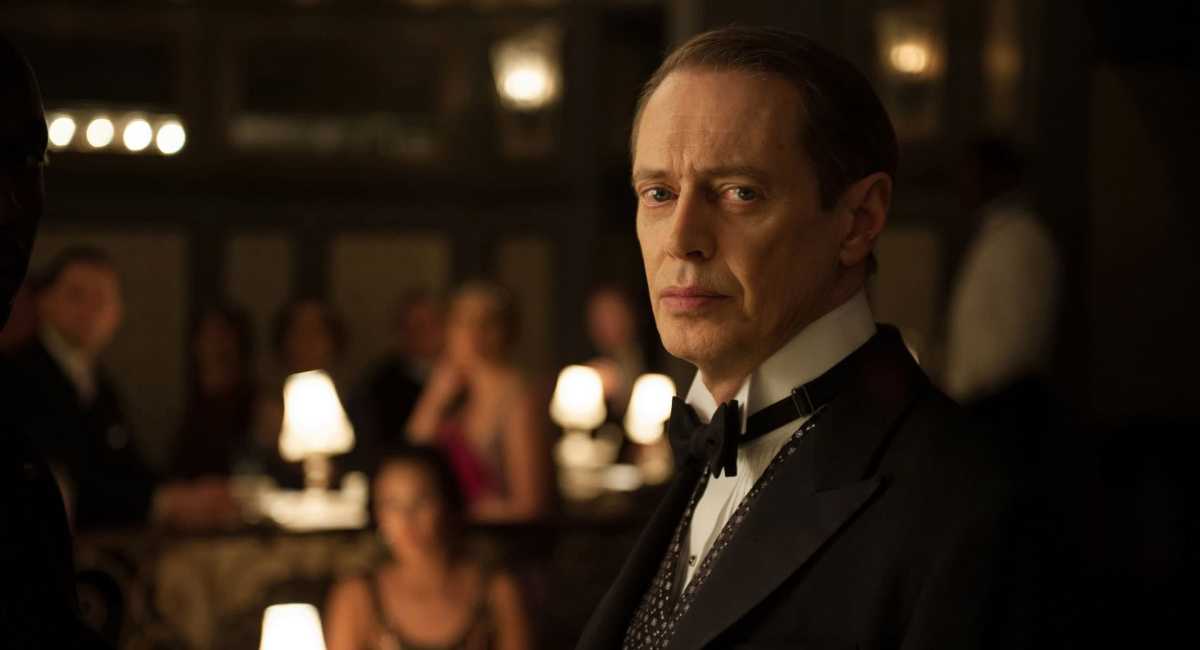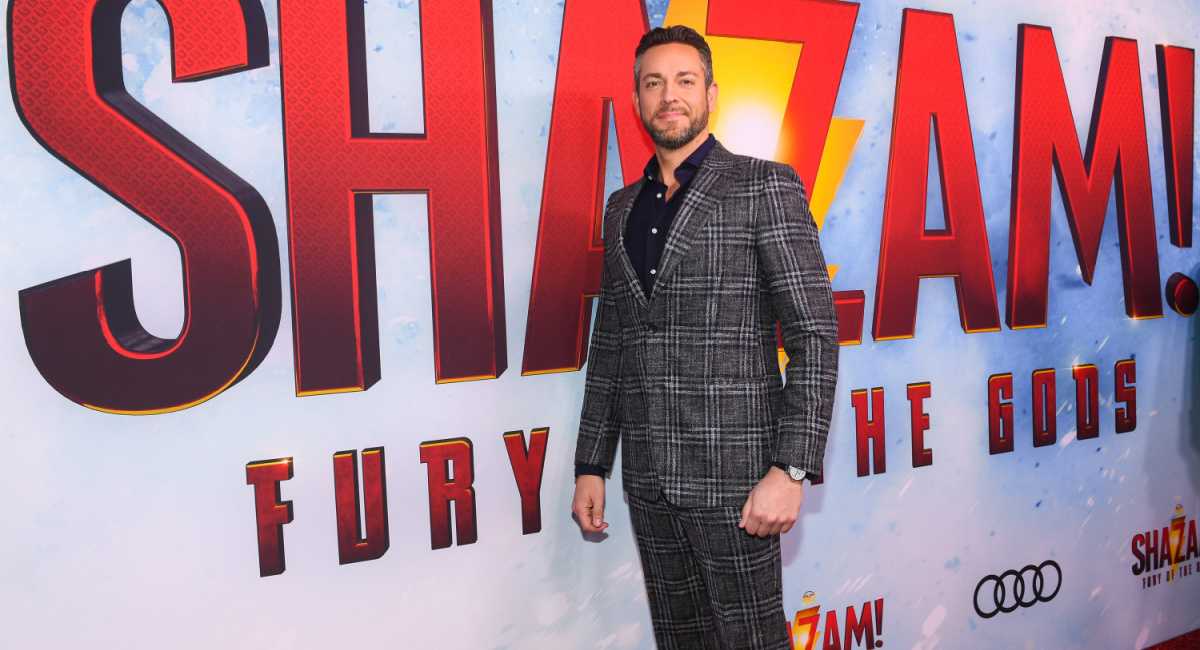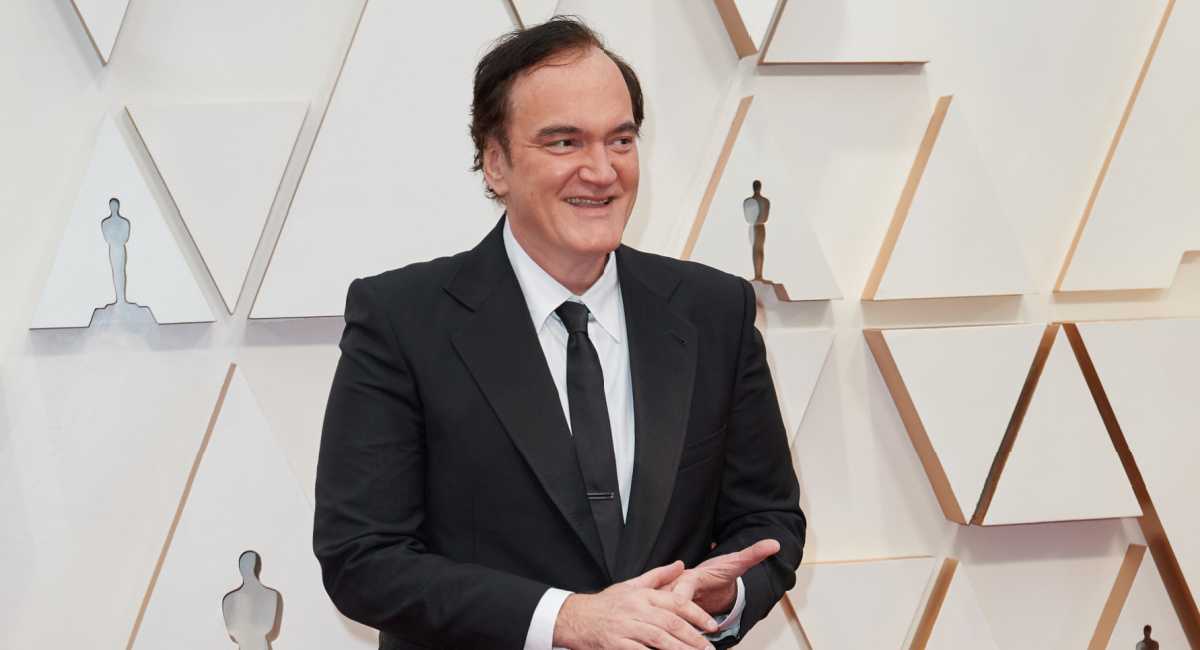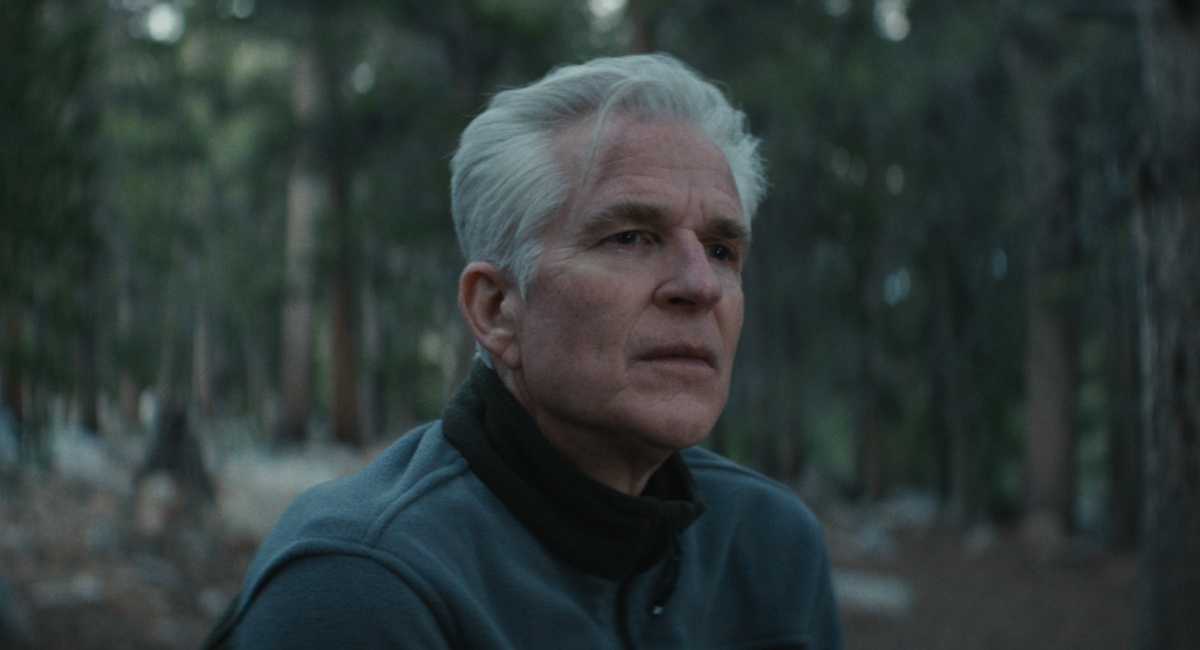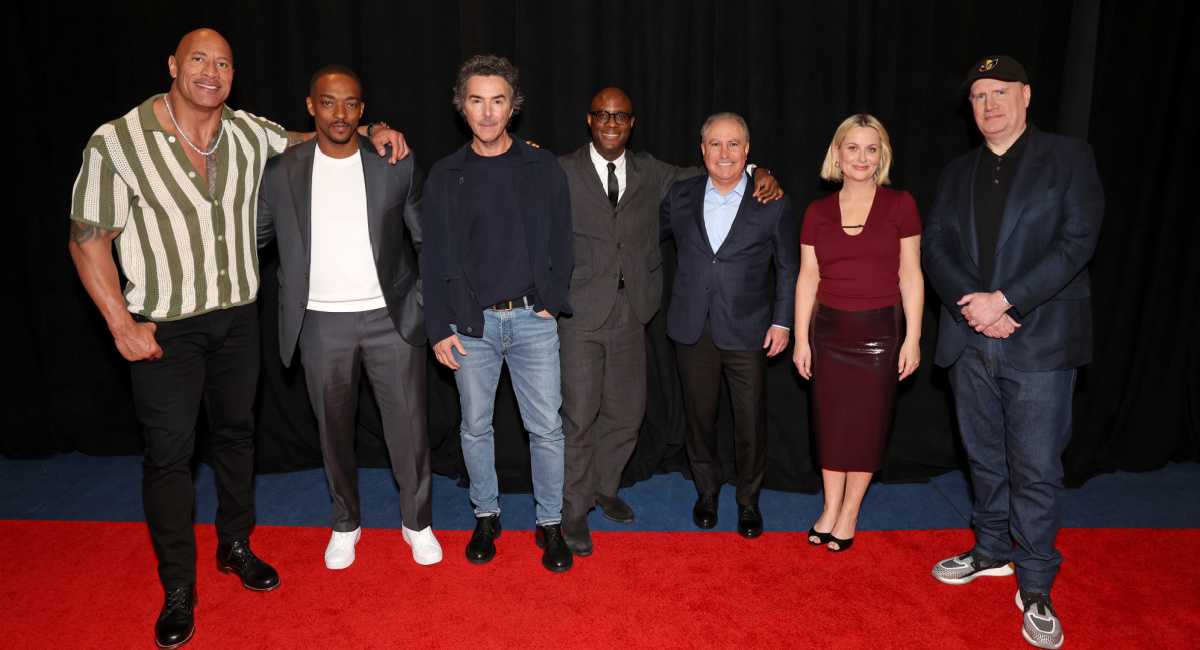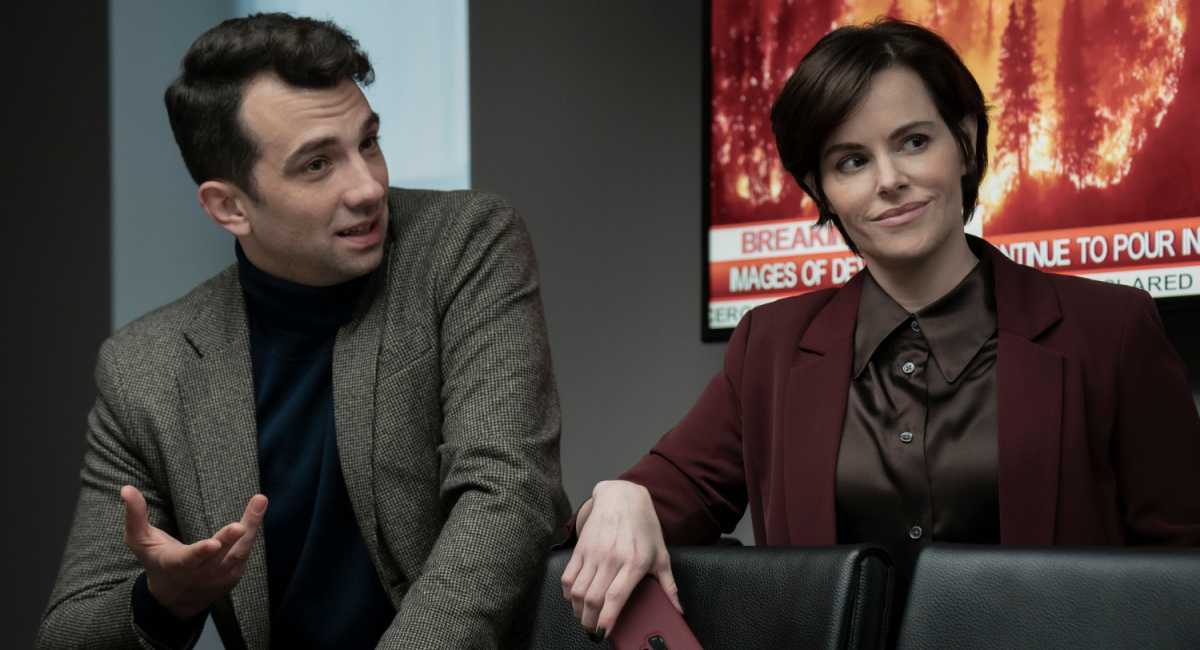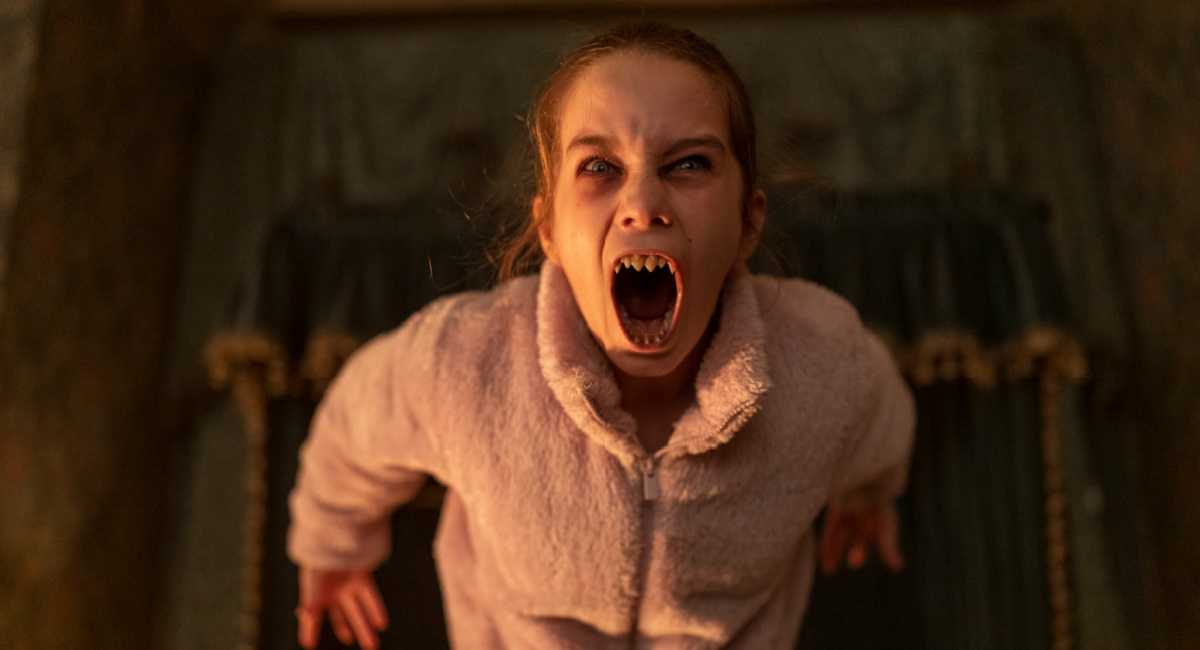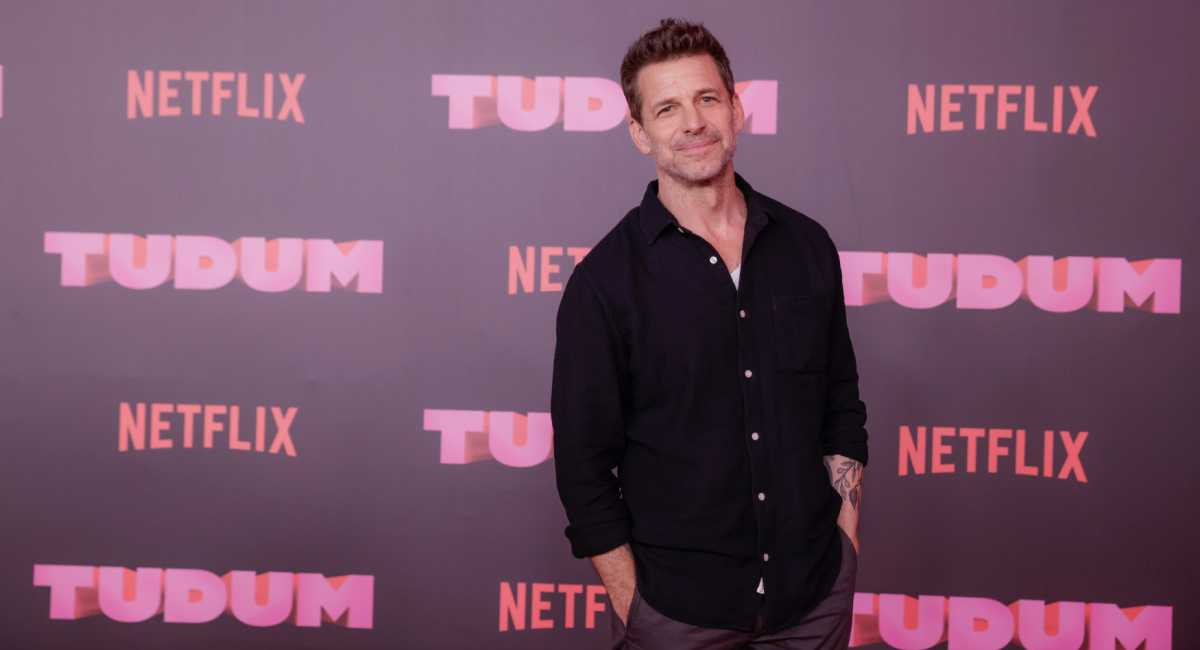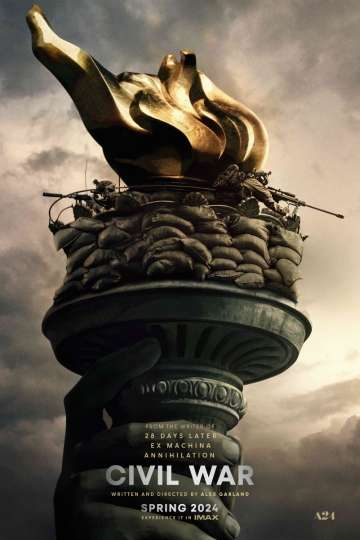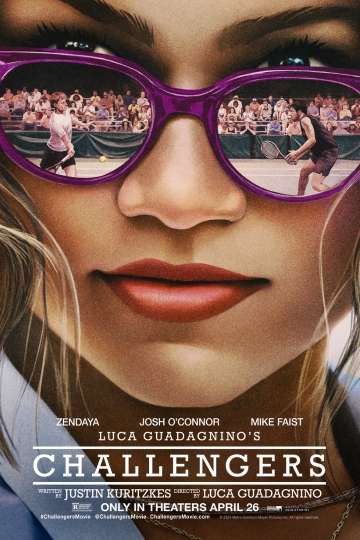Cameron Crowe's First Concert Nearly Cost Him His Life
As the writer-director behind romantic comedy classics like "Say Anything...," "Singles" and "Jerry Maguire," Cameron Crowe knows how to spin a good love story. But uniquely among filmmakers, he really understands how to make the romance between someone and the music they love come alive on screen.
That's why its welcome news that Crowe -- who, as vividly depicted in his semi-autobiographical film "Roadies," his new series for Showtime that delves into the lives of the music-besotted concert tour crews that make arena rock happen from city to city.
Drawing on his deep vault of personal experiences and inside knowledge about life on the road (he was also married to Heart's Nancy Wilson for over a quarter of a century), Crowe talks about putting his past to work, his last interaction with David Bowie, and the concert that almost ended his life.
On getting up to speed on the current state of the tour business since his heyday on the road:
"It's a little more mechanized. It's a little bigger, and smaller. The middle has disappeared, like so many other ways. It's like, big, big, big flourishes and small, small, small flourishes. I love the idea that bands do living room concerts now, and they tour living rooms. And guess what? They're great shows. They're great shows. So I like that and I like expressing that in the show.
"Also, a band like [the series'] The Statehouse Band is kind of struggling to find out what the next phase is. So we'll find out through the show -- like, where do you fit now? You've been together for 10 plus years, where are you going to take your audience now to make yourself compelling? That's a fun issue to get into."
On staying connected to his memories of joining bands on tour:
"I kept notes on everything -- I'm actually doing a collection book now. It's so bizarre how present the memories are. Not a lot changes. I see a lot of people in the notes from the interview that we've done like struggling to find a way to success with integrity. Dealing with failure. Turning failure into a lesson. It's all kind of stories that I've kept writing about.
"And I still have friends that are in bands and I go out and do shows and check out stuff. I've stayed researching pretty consistently. And it's present to me. It's very present.
"There's all kinds of stories, and real specific ones, too, about things that happened with crews or one member deviates from the personality traits he's had up until now. It's like, it's a never-ending fresh source to just go to real life. Because when you make it up, it's never as good."
On the people who surround and support the bands:
"The ambition is to make friends and family and celebrate the things that you love. I always felt like the whole sex, drugs, and rock and roll stereotype of rock-stardom was so kind of dishonest in a way. Because nobody ever picked up a guitar to get drugs. And they couldn't play very long because that's not going to help them write a song.
"That stuff can happen later. But what happens first is like somebody falls in love with a song, or piece of music, and it changes you life. That's what this whole crew has in common with the people they work for and the actors have in common too. So I like writing about that."On the contributions of fellow executive producer (and musically talented) J.J. Abrams:
"A lot! He also wrote some music that's in the show somewhere -- a little Easter egg! He was able to set up the original meetings and say like, "Here's Cameron, my friend for a long time. We've been talking about this project for a long time." "Here's a story, here's a show that I want to do as part of Bad Robot. We've been pitching to each other for a long time." So that makes the meeting go pretty well."
On what he learned from legendary filmmaker Billy Wilder ("Some Like It Hot," "The Apartment") while they worked on a book together that he still uses today:
"Let the audience put the facts together. Say 'Two and two,' but don't add it up for them and they'll love you forever. You always want to not be the guy that says, 'It's four! It's four! It's four! It's four!' It's like Carla [Gugino] and Luke [Wilson's] relationship in the pilot: Don't keep saying 'Oh, they're a work marriage. They're not a real marriage.' Just show it and people will get it. So that was a little lesson from Billy Wilder, for sure."
On why the show isn't a continuation of "Almost Famous":
''Almost Famous' really kind of needed to be that one story, which is getting that one interview that was so hard to get. And that was kind of the thing that was defining about that time and for me. And some of the bands took me in, and some of them didn't. But the ones that took me in created an adventure that lives and lives and lives. So I thought, let's tell one story and that's the story of 1973."
On his own legendary teenage years touring with the biggest rock acts of their day as a reporter for Rolling Stone:
"Nobody told me that it couldn't be done! It was only later when people would say, like, 'Are you kidding me? You did blah blah blah?' I'm like, 'Yeah -- is that wrong?' 'Yes, it's wrong. You can't ask Led Zeppelin to just take you on the road!' But I did.
"Part of it, I think, was being that age. And another part of it was a lot of the journalists in that era were guys that were from a previous era of loving a different kind of music. If you're, like, Jethro Tull, and they send some guy that could really give a sh*t about Jethro Tull's music, you're going to be a little pissed about it. Like, 'This is our shot as Rolling Stone and he's this guy that really is like holding it against me that I'm not Miles Davis? Wait, here's a 16-year-old kid that knows every chord that I've played and he's writing for Rolling Stone -- I want to talk to him.' That happened a lot.
"So they would say like, 'You're really the guy? They print your stories?' I was like, 'Yeah. But I do have tough questions.' It's like, 'It's okay. You know the songs. Come with us.' And that happened again, and again, and again."
On his last exchange with David Bowie, whom he spent six months following in 1975:
"My last memory of David was doing liner notes for the 'Station to Station' expanded release that they did. He wanted me to do liner notes, and I had kept really good records of that session. So I wrote a very detailed set of liner notes about the session and how he created these songs like 'TVC 15' and stuff like that.
"I asked to talk to David, and his guy said 'He's not doing interviews, but he really wants you to write about the session.' I thought it was really good, but the note I got back was, 'He's a little disappointed. He wanted you to write more about the music and what you thought of the music.' It was like, 'Damn -- okay, cool.'
"So I went and I did another pass where I talked about how the music felt and what it meant to me and left everything else that was already there in. And it was better. So it was like, 'Damn -- he just did a good edit on me.' And that was my last experience with David, but I was writing something [before he died] that I wanted him to act in. I loved him as an actor."
On his ultimate concert experience:
"I would say the first one was where I got to go to a concert all by myself, and it was The Who. I didn't have a ticket on the floor, but I snuck down on to the floor right before they came on stage and got caught in a crush to get to the stage. And I got pressed to the very front of the stage and couldn't breathe. And then The Who came on, and they were my favorite band at the time ... I didn't know what was going to happen. I remember thinking, 'They're playing "My Generation" right now, and I may die.'
"Then, I got sucked in under the crowd and spit out 50 yards away, and it was the best f*cking concert I've ever been to, and maybe still. It was like: 'All the songs you want to hear; near-death experience; escaping your protective family life -- Yes!'
"Roadies" premieres Sunday, June 26th, on Showtime.


